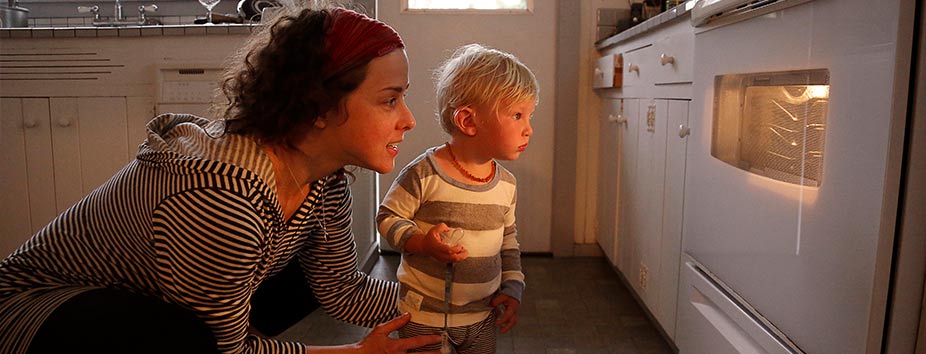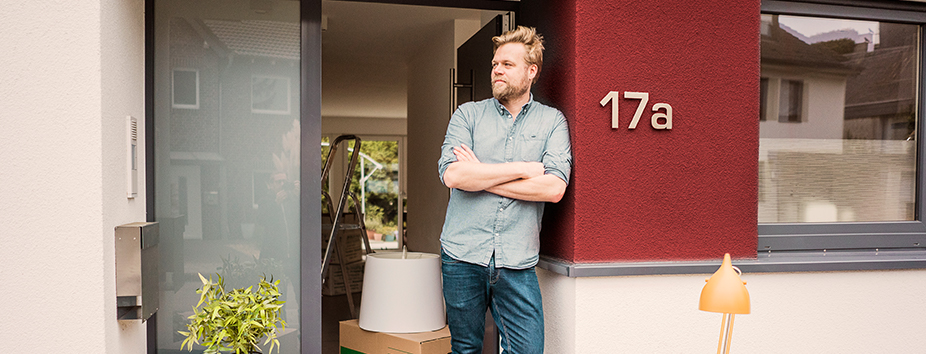Renovating your current home
Renovating can be a key step in the process of selling, staying or turning your current house into an investment property. It could be just what your home needs to make it more appealing as a place to live – whether that’s for you, for renters or for buyers.
But to make sure you don’t over-capitalise (spend more on the renovations that what you’ll get back in resale value), or blow out your renovation budget, first you need to know why you’re renovating:
Are you renovating to sell?
When you’re renovating to sell, your goal is to increase the value of your home - so that you can sell your property for a greater profit. Some of the savviest renovations for return on investment include: a new kitchen, a second bathroom or adding a bedroom.
Are you renovating to rent out?
When you’re renovating to rent, your goal is to boost rental income – smaller renovations can be a good way of commanding a higher rental income. You may want to get a local real estate agent’s view on how you can give your property greater rental appeal – but a fresh coat of paint inside or out, or a new carpet, could help.
Are your renovating to make your home more liveable?
When you’re renovating to stay, you’re wanting to make your home more liveable – updating your current home in a way that will make it easier or more enjoyable to live in could be the answer. For example, upgrading the hot water system or bathroom, or building a deck for outdoor living.
Pros and cons of renovating versus selling
Potential benefits of renovating
- Avoid the costs of selling. The costs of selling your home and buying another can quickly add up, including stamp duty (a tax on property purchases), real estate agent sales commissions, moving costs and more. In comparison, even adding an extra bedroom or bathroom could be a fraction of that cost.
- Improve the comfort and functionality of your home. A renovation could solve the problems you have with your current home, whether it’s the need for extra space or more modern amenities.
- Increase the value of your home. Renovations can increase the value of your home, whether you’re looking to sell straight away, or down the track. They can also increase the rental value if you plan to keep the property as an investment.
- Lower energy costs. Things like upgrading to more efficient appliances, installing solar panels or better insulation could lower your living costs over time.
Potential disadvantages of renovating
- Overcapitalising. One of the biggest risks when renovating is overcapitalisation – when you spend more on the renovation than the eventual increase in property value. When you’ve overcapitalised, the sale price of your home doesn’t reflect the amount of money you spend on renovations.
- Blowing the budget. Whether it’s because of time delays or hidden costs, renovation costs can creep up fast.
- The time it takes. Most renovations take longer than planned - waiting periods for materials or new appliances, coordinating tradespeople, or even bad weather can slow your renovation. Keep in mind that time delays can affect costs as well, particularly if you’ve had to move out and rent elsewhere while your renovations are happening.
Potential benefits of selling
- Take advantage of your equity. Utilise the equity that you have in your property – including any capital growth – to upgrade to a better or more suitable home.
- Accommodate your needs. Sometimes, a renovation isn’t possible to achieve the current or future needs you have in a home. When you buy, you can look for a property that will meet those needs.
- Avoid the mess and stress of renovating. Having your home in disarray can make things stressful, especially when renovations run over time or budget.
Potential disadvantages of selling
- It’s stressful. Some people consider moving home one of the most stressful experiences you can go through in your life.
- It’s expensive. The costs of selling and buying property can run into the tens of thousands of dollars, including, possibly:
- Conveyancing ($1,000 to $2,000)
- Marketing your current property (might range from 0.5% to 2% of the property’s value)
- Agent fees (2-3% of the sale price)
- Property styling or staging (up to $5000)
- Stamp duty (could be between 3-4% of the property value of the purchase price)
- Lenders Mortgage Insurance (a percentage of your home loan, usually required if you have less than 20% deposit).
Learn more about the costs of selling a house.
Setting your renovations up for success
These simple strategies could give you a greater chance of making renovations work and meeting your needs:
- Set a budget. Having even a ball-park estimate will help you stay on track – and having contingency funds handy for cost and time over-runs is a great idea.
- Speak to your lender. If you think you need additional funds for your renovations, reach out to your lender to explore your options. You may be able to use your existing equity to cover the cost.
- Avoid overcapitalising. Ensure you talk to local real estate agents and valuers to understand the current market conditions and get a rough idea of the likely value the renovation will add to your property.
- Consider doing it yourself. Consider doing minor renovations – such as painting – yourself to save costs. But don’t over-estimate your abilities, or it could cost you in the long run.
- Plan and design. Talk to tradespeople to understand the feasibility and costs of your idea. Get quotes as well as delivery timelines.
- Start the council approval process early. Depending on your property type and the renovations you’re planning, you may need council approval. The earlier you talk to your council the better, as some approvals can take a while.
- Look for low cost improvements. Such as new light fittings or fixtures, a fresh coat paint or some outdoor planting to add to street and visual appeal.
A look at overcapitalisation when renovating
There are a couple of ways you can over-capitalise when renovating. Always keep in mind whether the renovations are something that a buyer or renter would find appealing or pay more for, as well as the value of your home in comparison to the median price in your suburb.
Common ways overcapitalisation happens:
- Doing a renovation that doesn’t add value in the eyes of the buyer market. For example, it isn’t cost-effective to add in expensive fixtures, features or finishes that look amazing, but don’t actually boost the value of your home.
- When the location of your home affects sale price. Renovations that could push the value of your home a lot higher than the average of the area it’s located could extend your property’s value beyond what buyers would pay to live in your suburb.
- The value of the renovation is affected by the wider property. For example, you add a high-end kitchen into an entry-level unit, but wouldn’t be able to make the same increase in sale price because the market doesn’t perceive the property as having the corresponding increase in value.
- Your improvement is absorbed by capital gains. This can happen particularly when you are keeping the property for the long term. It means that when you go to sell the property, you get the same amount as you would have without the renovation, because the house appreciated in value.
- You make unnecessary renovations. Such as when your home already has two bathrooms, and you add a third one.
Spending more on the renovation than the value added
Here’s an example: let’s say you own an $800,000 house in a suburb where the majority of houses sell for between $650,000 and $700,000.
You decide to upgrade the kitchen, bathroom, and move some walls to create an additional living room.
Ultimately you spend $100,000 on the renovation, but the value of the property has only increased by $50,000, because an additional living room generally doesn’t improve value.
You also risk your home becoming too expensive (say if you asked for $900,000 sale price for the home) for the area. Buyers may struggle to see the value in your asking price, to live in that area.
Renovating to add value for a buyer
Another example: You own an $800,000 house, in a suburb where the houses tend to sell for between $800,000 to $900,000.
You buy ‘flat packs’ to upgrade the kitchen and bathroom, and do some of the work yourself. You purchase a ready-made pod to extend your house, adding a third bedroom.
Ultimately you spend $65,000 on your renovation. To get your money back your house would need to sell for at least $865,000, which is in line with average sales prices in your suburb – and an additional bedroom is seen as valuable to buyers.
Selling your property
When it’s time to sell, there’s lots to consider: calculating what your property could sell for, as well as associated costs such as marketing expenses and real estate agent commission. Read more about the costs of selling a house.
Some benefits of selling your property
- It frees up funds for the purchase of your next home.
- Not having multiple properties gives greater clarity over the amount of money you have available to purchase your next home.
- Managing only one property is easier and less stressful – no need to worry about finding tenants and covering investment property costs.
Explore whether you should sell before you buy your next home.
Keeping your home as an investment
There are a few reasons you may decide to keep your current home as an investment property and rent it out.
- Rental returns. An investment property generates regular monthly rental income. If the rental income is more than you need to pay to maintain the property, including any mortgage costs, this is called ‘positively geared’, and is your profit.
- Capital gains over time. If the property continues to appreciate in value over time, you’ll be earning capital gains on the property you kept as an investment.
- Tax deductions. Keeping an investment property gives you the opportunity to claim tax deductions. For example, you may be eligible to claim any interest you pay on your loan as a tax deduction, as well as costs associated with maintaining the property.
- You can use your equity. If you’ve built up equity in your property, you may be able to utilise that towards the deposit on a new home. Keep in mind you’ll need to make sure you can afford to service both the mortgage on the new property, and any amount you’ll need to continue paying towards your current property if the rent you receive (assuming you rent it out) doesn’t cover the full amount.
Use your calculator to work out your home equity.
Extra tools and resources
Stamp duty calculator
This calculator estimates how much stamp duty and lenders mortgage insurance you may have to pay when buying a property.
Calculate stamp duty
Home equity calculator
Estimate the amount of usable equity you have in your current property and understand your options for buying your next time.
Calculate your equity
Mortgage calculator
Calculate how much you could afford to borrow, based on your financial situation.
Mortgage calculator
Repayment calculator
Calculate how much your home loan repayments would be with different kinds of mortgage set-ups.
Repayments calculator



